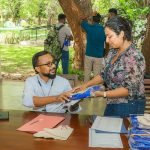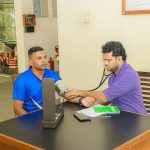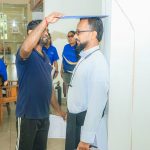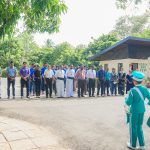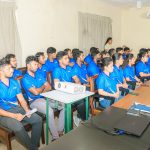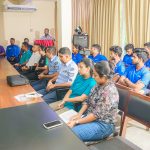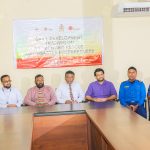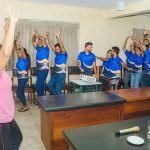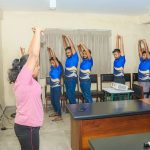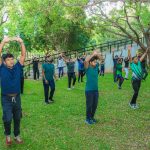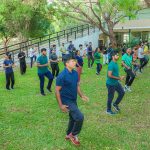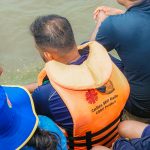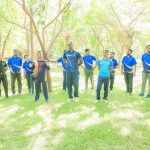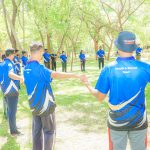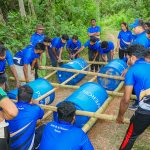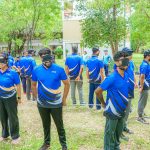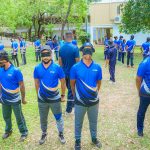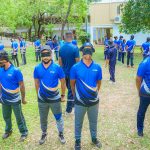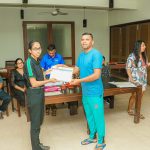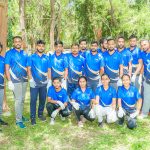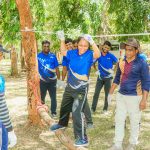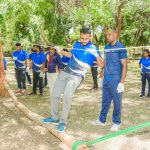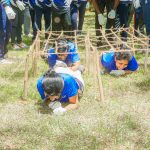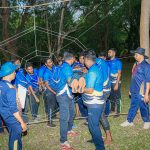From July 24th to 27th, 2024, a transformative program “Capacitating CSL Staff to Mobilize Vulnerable Communities to be Resilient for Disasters” was held at the Ranminithenna Tele Cinema Village in Tissamaharama. This significant initiative, funded by Caritas Asia, brought together 38 participants, including Diocesan Center (DC) Directors, DC & NC Program Coordinators, and volunteers from across the country. All the participants united in their commitment to empowering vulnerable communities to withstand and respond effectively to disasters.
The main objective of this training was to enhance the disaster resilience and humanitarian capabilities of these communities. The program was facilitated by Mr. Premasiri Geeganage, Executive Director of the Standard Capacity Promotion Center, along with a skilled team of experts. Mr. Chandana Siriwardhana, an experienced OBT trainer, contributed significantly to the program’s success, alongside personnel from the Sri Lanka Navy, the Police, and the St. John’s Ambulance Service.
One of the key highlights of the program was the intensive first-aid training provided to all participants. This critical component emphasized the importance of immediate medical assistance during disasters, equipping the attendees with essential life-saving skills. In situations where professional help might be delayed or unavailable, these skills could make the difference between life and death.
The program also included disaster scenario simulations, which offered participants the opportunity to apply their newly acquired knowledge in a controlled environment. These hands-on exercises simulated real-life disaster situations, challenging the participants to respond quickly and effectively. A particularly notable aspect was the mock disaster drill, a realistic exercise that tested the participants’ ability to implement their training in an actual disaster scenario.
In addition to the technical training, the program featured a range of activities designed to build both soft and hard skills. Participants engaged in hiking, rafting, and first aid practical sessions, all of which contributed to their overall disaster preparedness. The outbound training (OBT) sessions focused on leadership, team building, and personal development, ensuring that the participants were well-rounded and capable of handling the complexities of disaster management.
Direct observations during the program highlighted the high level of commitment and active participation from all attendees. The presence of government officers from the Hambantota District Management Center and Navy personnel added an extra layer of expertise, offering authoritative and practical insights into disaster management. The comprehensive nature of the training covered first aid, leadership, team-building activities, physical training sessions, and a dynamic cultural event.
As the program concluded, several key action points were identified to ensure the sustainability and effectiveness of the training. One of the main recommendations was to form Community-Based Disaster Preparedness (CBDP) groups at the diocesan level, utilizing the knowledge and experience gained during the training. Additionally, participants were encouraged to identify specific vulnerabilities within their dioceses and create customized preparedness plans to address these challenges.
The success of this program marks a significant step forward in Caritas Sri Lanka’s mission to empower vulnerable communities and enhance disaster resilience across the nation.




